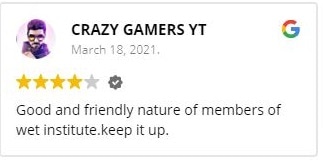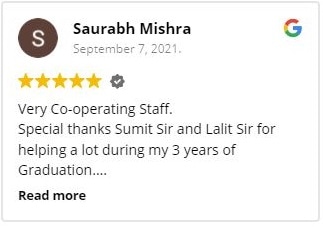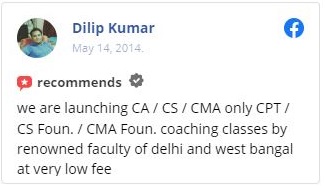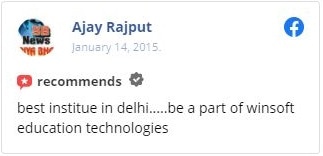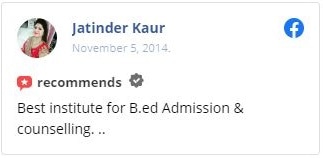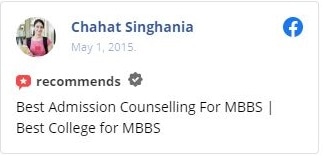B.Tech Admission from Top indian Universities: Admission Process, Eligibility Criteria, Syllabus, Scope, Fees, Duration, and Career Opportunities.
The Bachelor of Technology (B.Tech) program is an undergraduate degree that prepares students for various fields in engineering and technology. The admissions process varies across universities but generally follows a standard procedure.
1. Eligibility criteria:
- Educational Qualification: Candidates typically must have completed their 10+2 education with a strong emphasis on science subjects, particularly physics, chemistry, and mathematics (PCM). A minimum percentage (usually around 50–60%) is often required.
- Entrance Exams: Many universities require candidates to qualify for entrance exams such as JEE Main, JEE Advanced, or state-level entrance tests.
2. Admission Process:
- Application Form: Candidates need to fill out the online application form available on the university’s official website or through relevant entrance exam portals.
- Entrance Exam: Students must appear for the required entrance exams and achieve a qualifying score to be considered for admission.
- Merit List: Based on the entrance exam results and academic performance, a merit list is prepared. This list will determine eligibility for counseling.
3. Counseling Process:
- Counseling Sessions: Shortlisted candidates are invited for counseling sessions where they can choose their preferred branches based on merit and availability.
- Document Verification: During counseling, candidates must present original documents for verification, including mark sheets, identity proof, and category certificates.
4. Fee Payment and Enrollment:
- Once a seat is allotted, candidates are required to pay the admission fee within a specified timeframe to secure their enrollment in the program.
5. Course Duration:
- The B.Tech program typically lasts for four years, consisting of eight semesters, including theoretical coursework and practical training.
6. Specializations Offered:
- Computer Science Engineering
- Electrical Engineering
- Mechanical Engineering
- Civil Engineering
- Information Technology
- Electronics and Communication Engineering
B.Tech Course: Eligibility Criteria
To apply for the Bachelor of Technology (B.Tech) program, candidates must meet specific eligibility requirements. Here’s an overview of the typical criteria:
1. Educational Qualifications:
- 10+2 Education: Candidates must have completed their higher secondary education (10+2) from a recognized board.
- Subject Requirements: A strong emphasis on Science subjects is necessary, particularly:
- Physics
- Chemistry
- Mathematics (PCM)
- Minimum Percentage: Most universities require candidates to have a minimum aggregate percentage, usually around 50% to 60% in the PCM subjects.
2. Entrance Examinations:
- Candidates may need to qualify for various entrance exams, which can include:
- JEE Main: National-level entrance exam for engineering admissions.
- JEE Advanced: For admission to IITs (Indian Institutes of Technology).
- State-Level Entrance Exams: Many states conduct their own exams for admission to engineering colleges (e.g., WBJEE, MHT CET, etc.).
- Institution-Specific Exams: Some universities may have their own entrance tests.
3. Age Limit:
- While there is typically no upper age limit, candidates must usually be at least 17 years old on or before the admission year.
4. Nationality:
- Candidates must be Indian citizens or meet specific criteria if applying as international students.
5. Additional Requirements:
- Some institutions may require candidates to submit a medical fitness certificate or undergo an interview as part of the admission process.
B.Tech Course: Syllabus
1. First Year
Basic Sciences:
- Physics
- Chemistry
- Mathematics
Engineering Subjects:
- Engineering Mechanics
- Engineering Drawing
- Computer Programming (C/C++)
Humanities:
- Communication Skills
- Professional Ethics
2. Second Year
Core Subjects (depending on specialization):
- Electrical Engineering Basics
- Mechanical Engineering Basics
- Introduction to Civil Engineering
- Digital Logic Design
Mathematics:
- Advanced Mathematics
- Advanced Mathematics
Laboratory Work:
- Physics and Chemistry Labs
- Programming Labs
3. Third Year
Core and Specialized Subjects:
- Data Structures and Algorithms
- Object-Oriented Programming
- Operating Systems
- Database Management Systems
Electives:
- Network Security
- Artificial Intelligence
- Software Engineering
Project Work:
- Mini project or practical assignments.
- Mini project or practical assignments.
4. Fourth Year
Advanced Subjects:
- Machine Learning
- Structural Engineering
- Control Systems
Electives:
- IoT
- Cloud Computing
- Embedded Systems
Final Year Project:
- A major project that demonstrates the application of skills learned throughout the course.
Industrial Training
- Exposure to real-world engineering problems through internships.
Admission Process for B.Tech in 2025-26 from Top Universities
The admission process for the Bachelor of Technology (B.Tech) program at top universities for the academic year 2025-26 generally follows a structured approach. Below are the typical steps involved:
1. Research and Selection:
- Identify Universities
- Check Eligibility Criteria
2. Application Form Submission:
- Online Application: Candidates must fill out the online application form available on the university’s official website. This process usually opens in late spring or early summer.
- Documentation:
- 10th and 12th-grade mark sheets
- Entrance exam scorecard (if applicable)
- Identity proof
- Passport-sized photographs
3. Entrance Examinations:
- Entrance Exam Registration: Candidates should register for relevant entrance exams such as JEE Main, JEE Advanced, or state-level exams.
- Preparation and Examination: Study for and take the entrance exams during the specified dates.
4. Merit List and Result Declaration:
- Merit List Preparation: After the entrance exams, universities will prepare a merit list based on exam scores and academic performance.
- Result Announcement: Results are typically announced within a few weeks after the exams.
5. Counseling Process:
- Counseling Sessions: Shortlisted candidates are invited to attend counseling sessions where they can choose their preferred branches based on merit and availability.
- Document Verification: Candidates must present original documents for verification during the counseling process.
6. Seat Allotment:
- Allotment of seats: Based on the counseling results, seats are allocated to candidates. The process may vary based on the specific admission guidelines of each university.
7. Fee Payment and Confirmation:
- Admission Fee: Once a seat is allotted, candidates must pay the admission fee within the specified timeframe to confirm their enrollment in the program.
B.Tech Course: Duration
B.Tech Program Duration:
The B.Tech program typically spans 4 years, which are divided into 8 semesters. Each semester usually lasts around 6 months, including examinations and breaks. Consequently, this structure allows students to systematically progress through their studies.
B.Tech (Bachelor of Technology): Fees
Tuition Fees:
Moreover, the fees for B.Tech can vary widely depending on the institution. Here’s a general range:
- Government Colleges: ₹50,000 to ₹1,50,000 per year.
- Private Colleges: ₹1,00,000 to ₹2,50,000 or more per year, depending on the reputation and facilities of the college.
B.Tech (Bachelor of Technology) Additional Fees:
In addition to tuition, there are several additional fees associated with the program:
- Registration Fee: A one-time fee at the time of admission.
- Laboratory Fees: Charges for practical sessions.
- Library Fees: For access to library resources.
- Exam Fees: Charged per semester for examinations.
- Miscellaneous Fees: This may include fees for extracurricular activities, sports, and other facilities.
B.Tech Course: Scope
Diverse Branches:
Firstly, B.Tech offers specialization in various branches, such as Computer Science, Mechanical Engineering, Civil Engineering, and Electrical Engineering, catering to different interests and skill sets.
Growing Demand:
Moreover, the demand for skilled engineers continues to rise in sectors like Information Technology, Construction, Manufacturing, Telecommunications, and Automotive industries.
Global Opportunities:
In addition, B.Tech graduates can explore job opportunities not only in India but also abroad, as many companies seek skilled engineers in global markets.
Higher Studies:
Furthermore, graduates can pursue higher studies like M.Tech, MBA, or specialized certifications, which can enhance their skills and career prospects.
B.Tech (Bachelor of Technology): Career Opportunities
Information Technology:
For instance, roles in this field include Software Developer, Data Analyst, Systems Engineer, and Network Administrator. Notable companies in this sector are Infosys, TCS, Wipro, Google, and Microsoft.
Core Engineering:
Similarly, in core engineering, roles such as Design Engineer, Production Engineer, and Project Manager are available. Companies like Tata Steel, L&T, BHEL, and Siemens actively seek B.Tech graduates.
Civil Services:
Additionally, graduates can prepare for competitive exams to join civil services or defense services, broadening their career options.
Research and Development:
There are also opportunities in research organizations and labs, focusing on innovation and technology development, which is crucial for advancement in the field.
Entrepreneurship:
Furthermore, many B.Tech graduates choose to start their own ventures, leveraging their technical skills to create startups in technology and engineering.
Consultancy:
Finally, engineering graduates can work as consultants, providing expert advice to businesses in their specialized fields.

